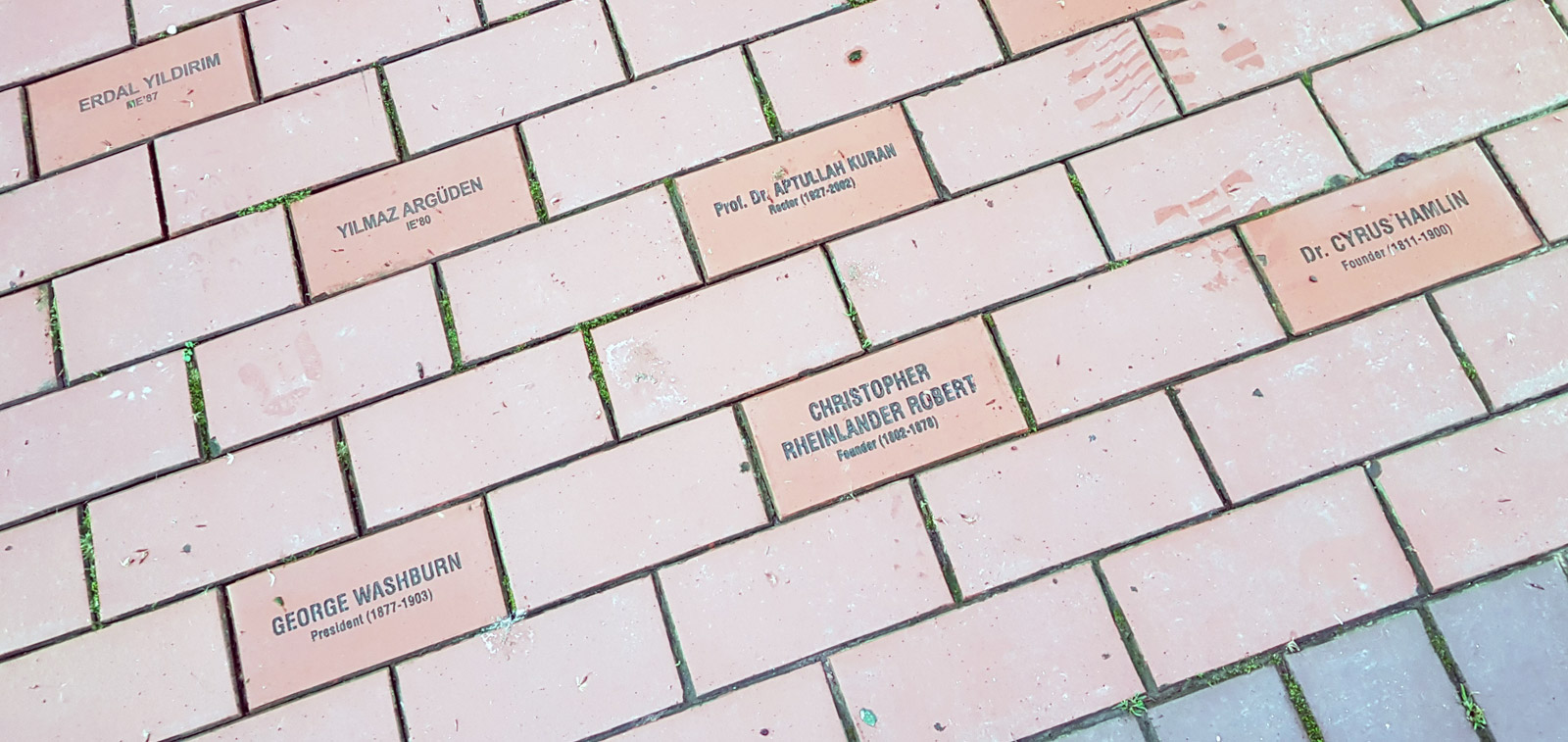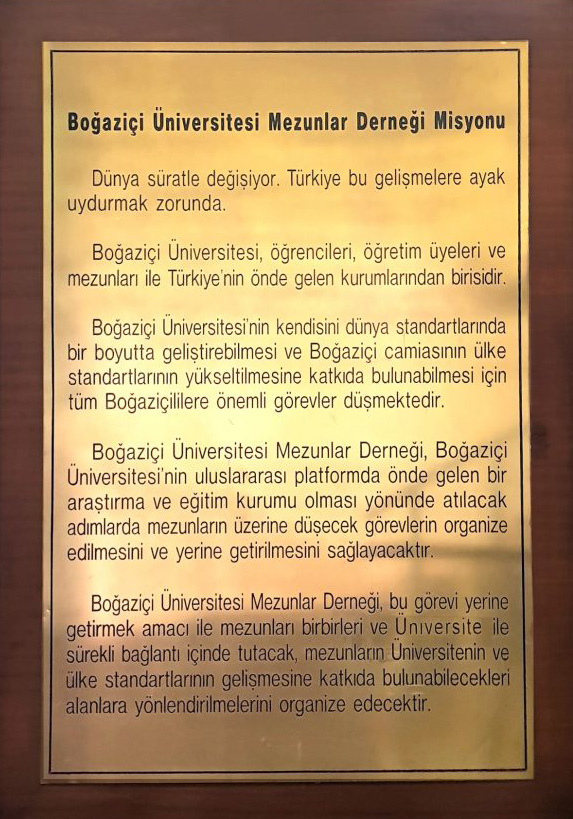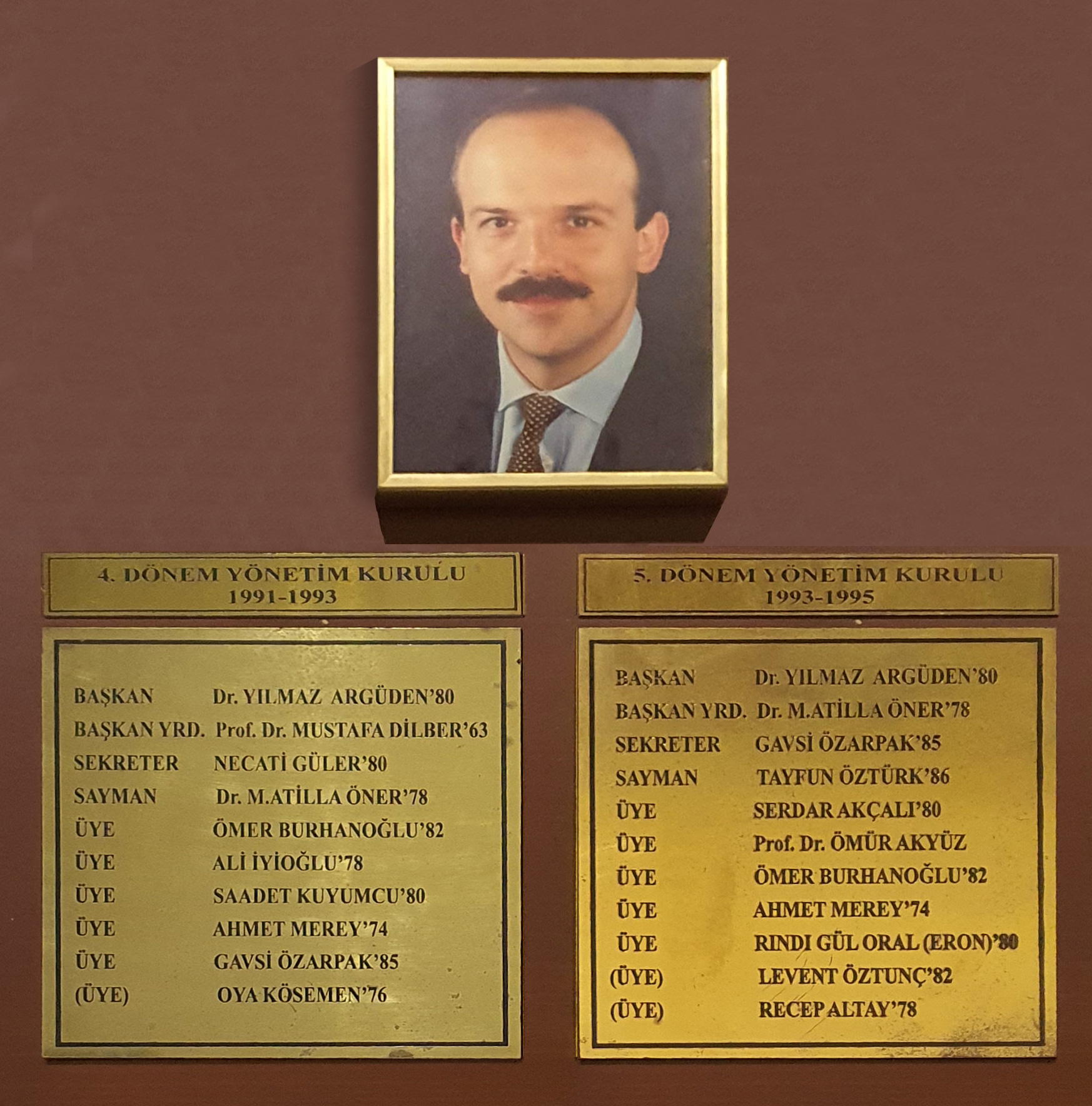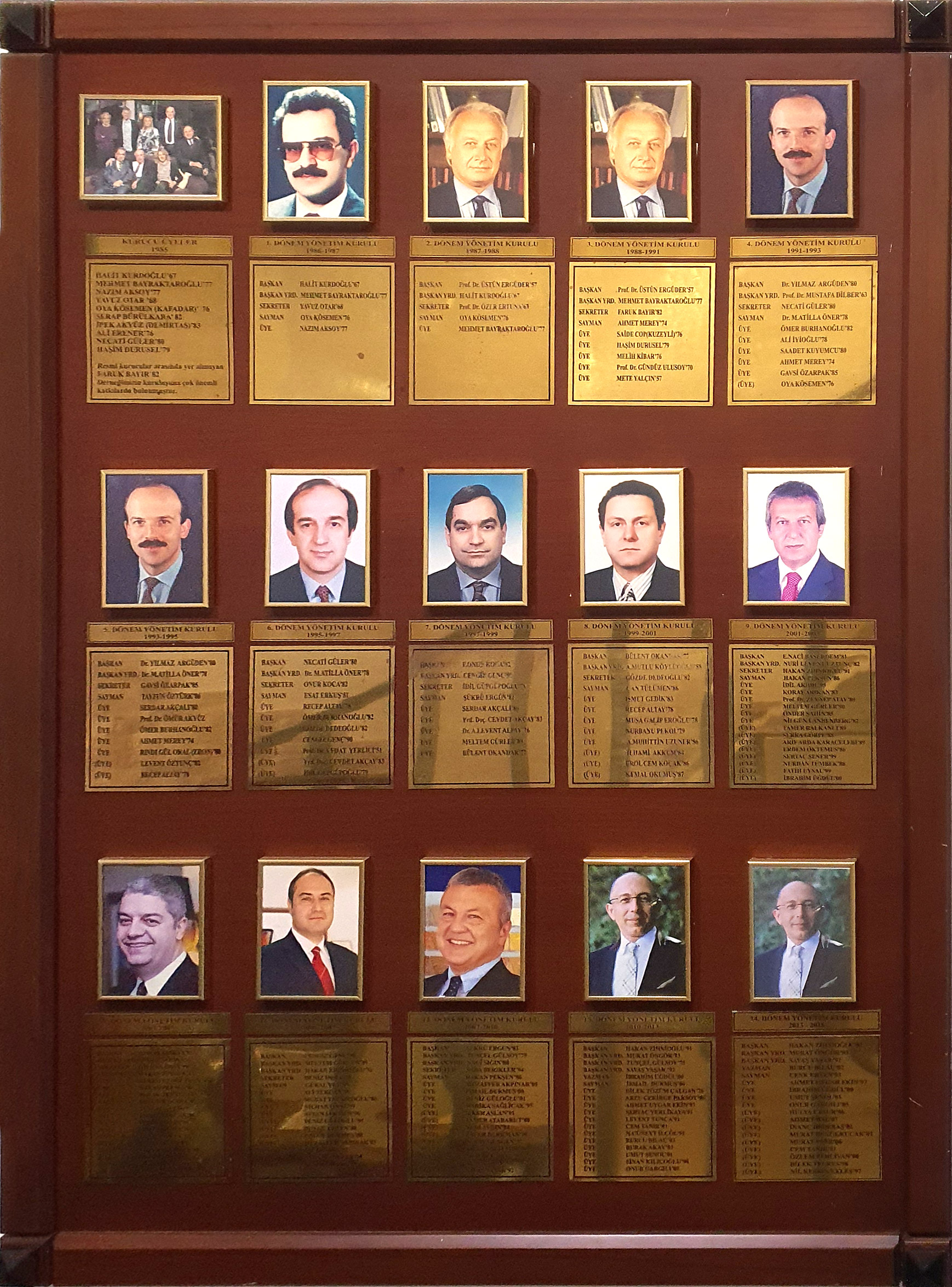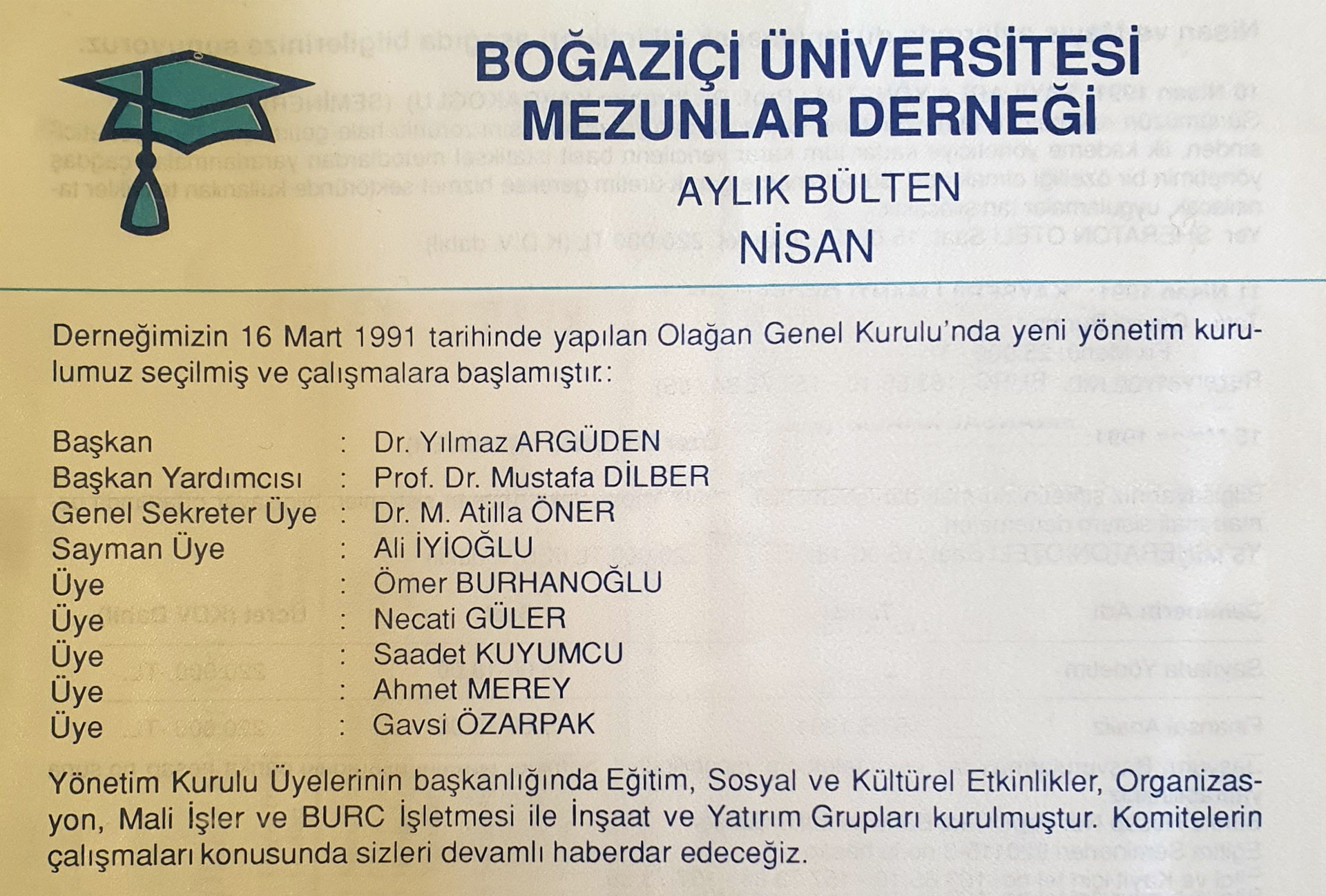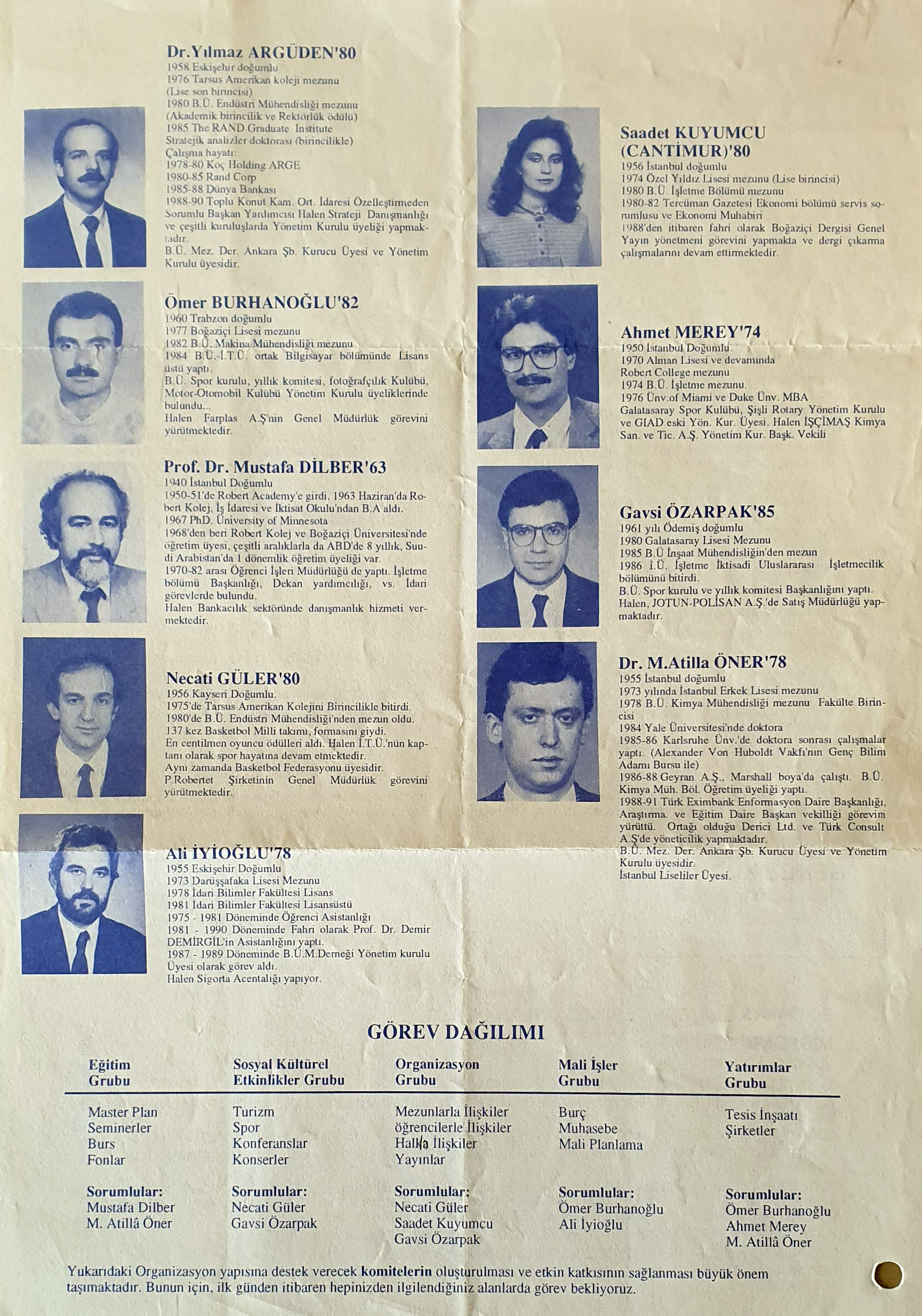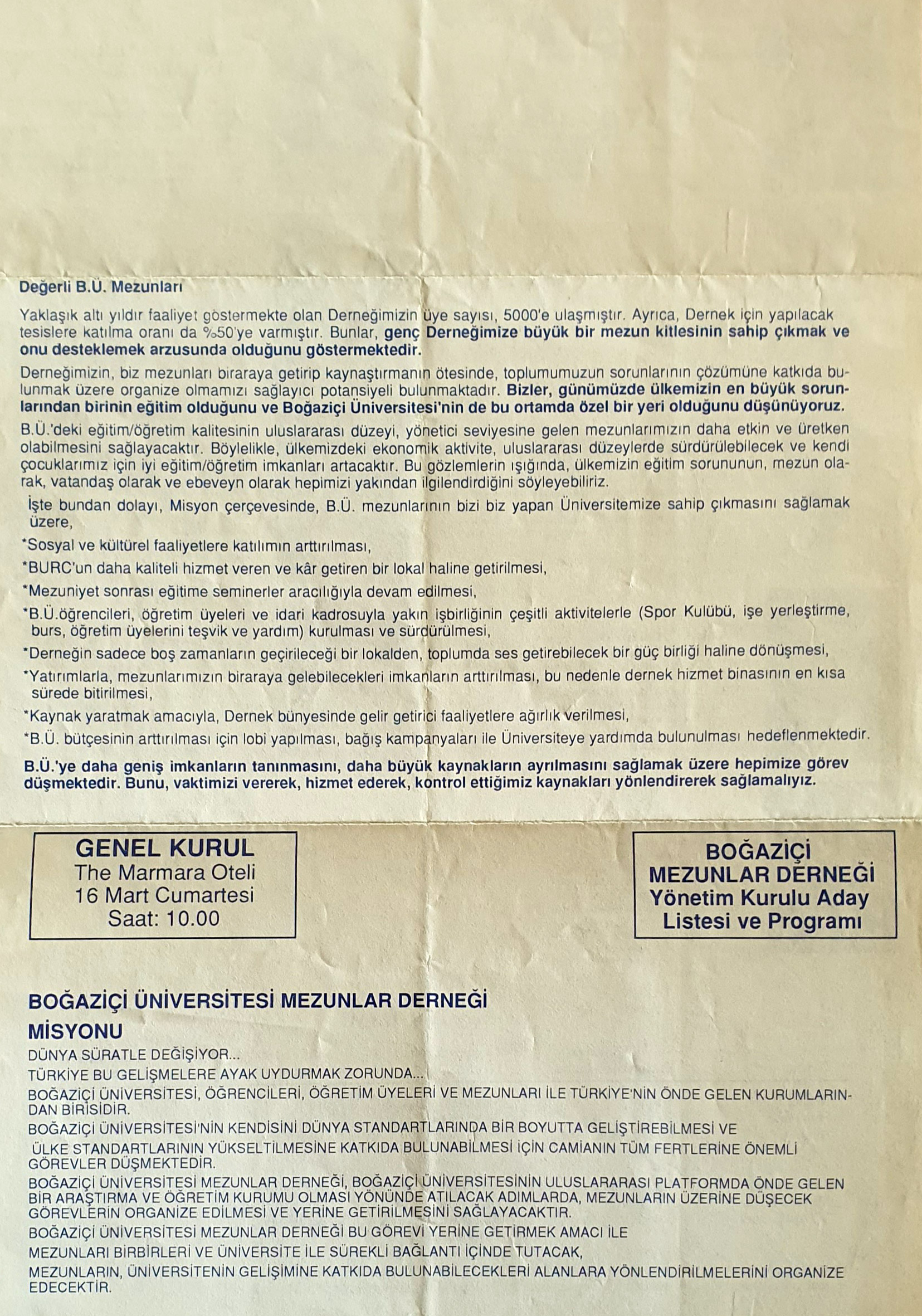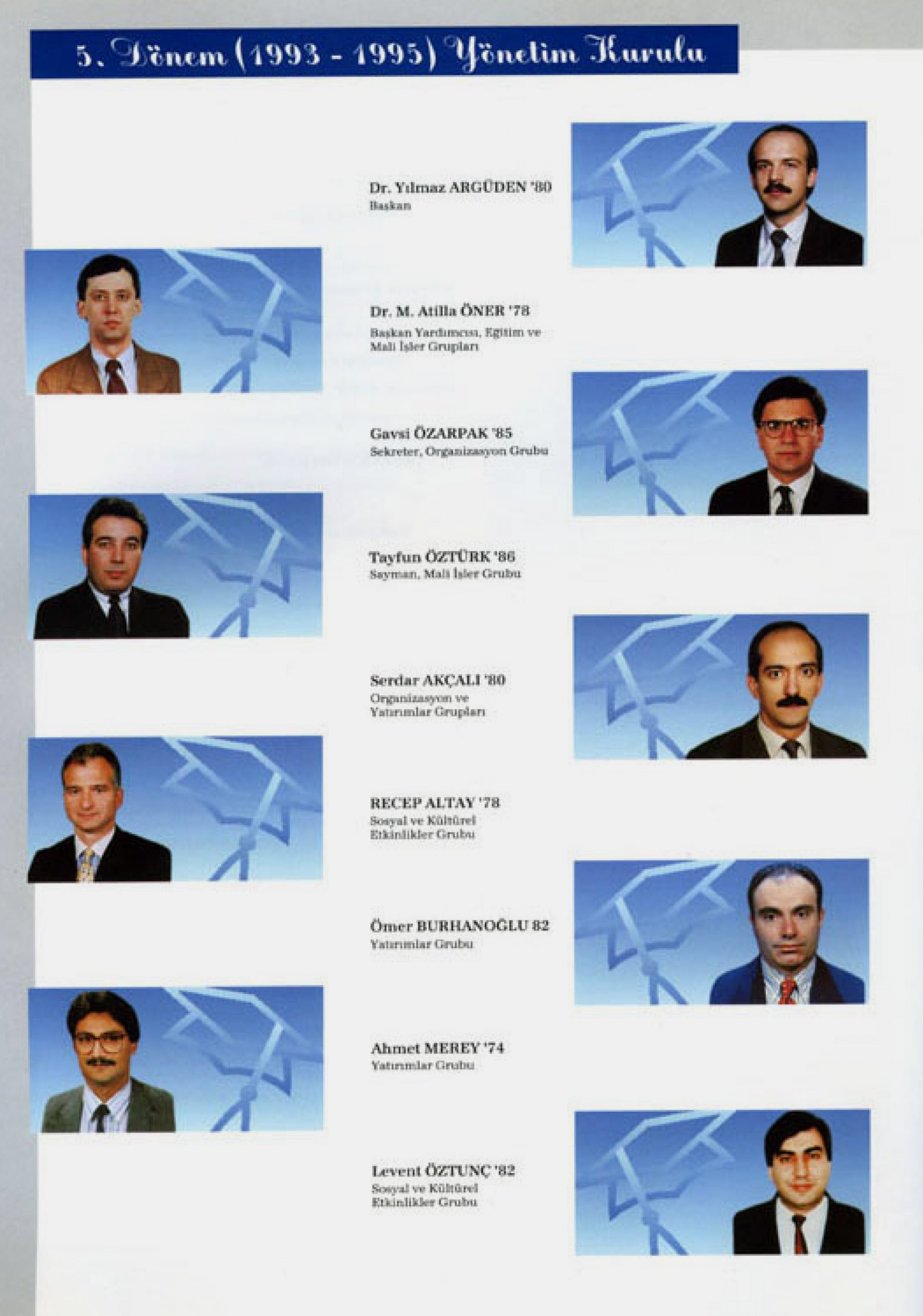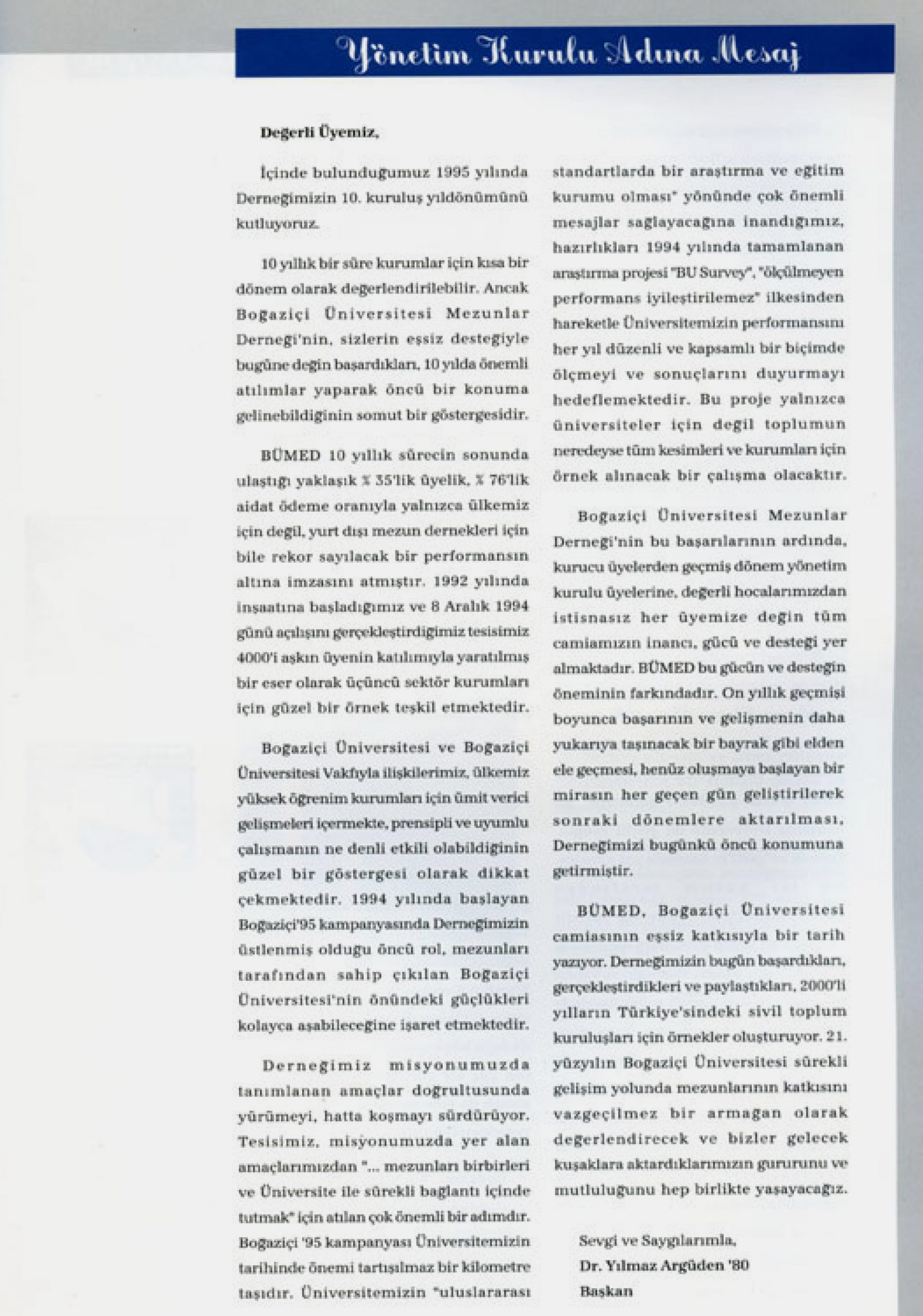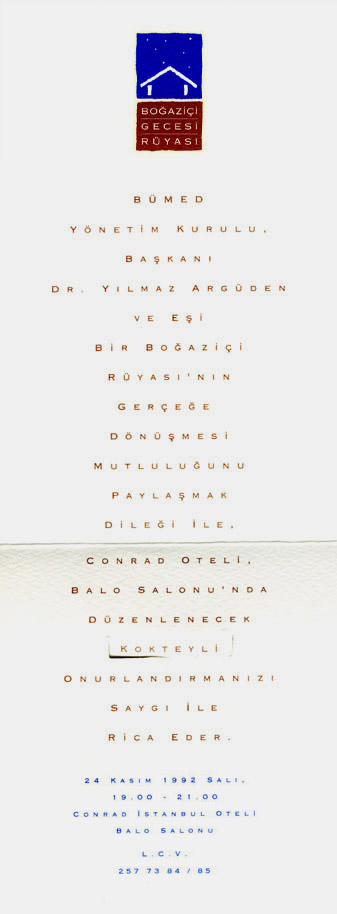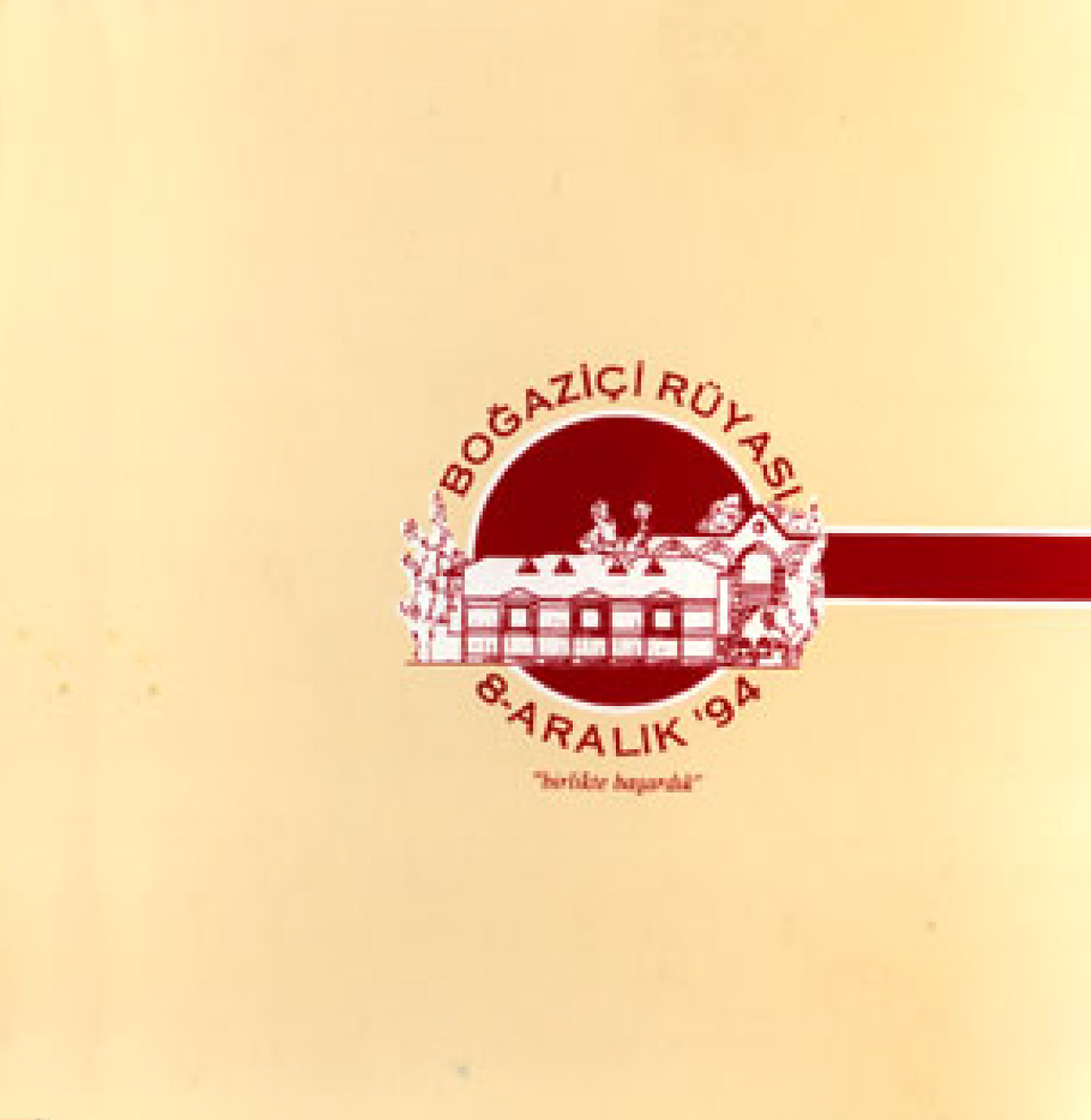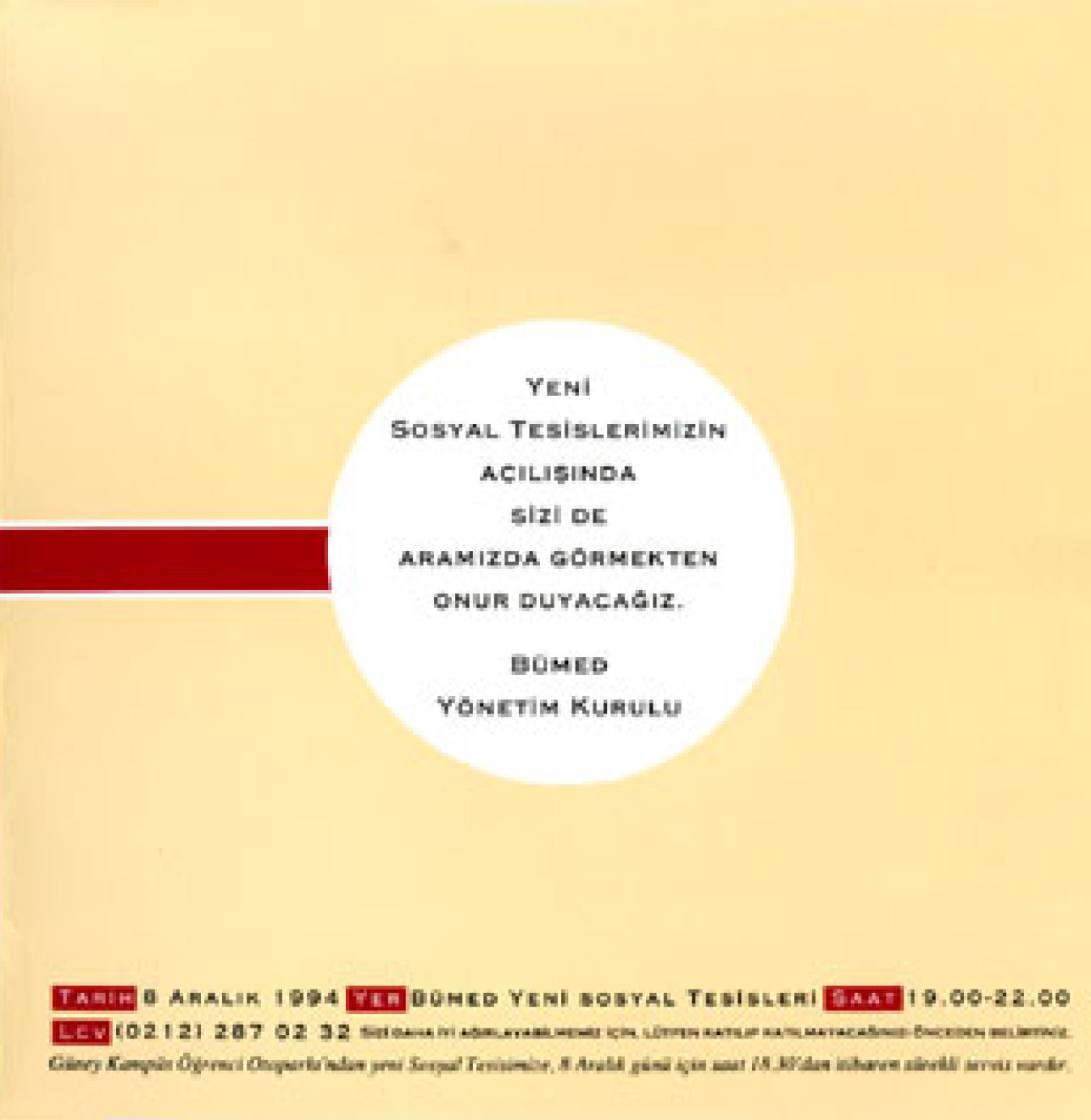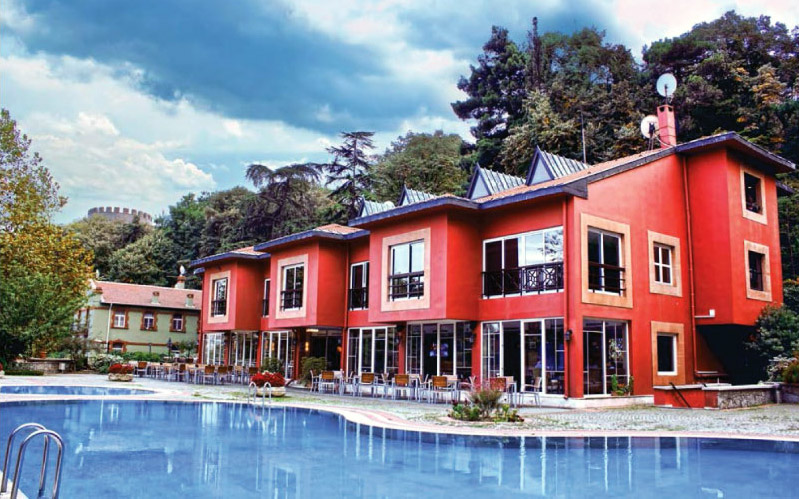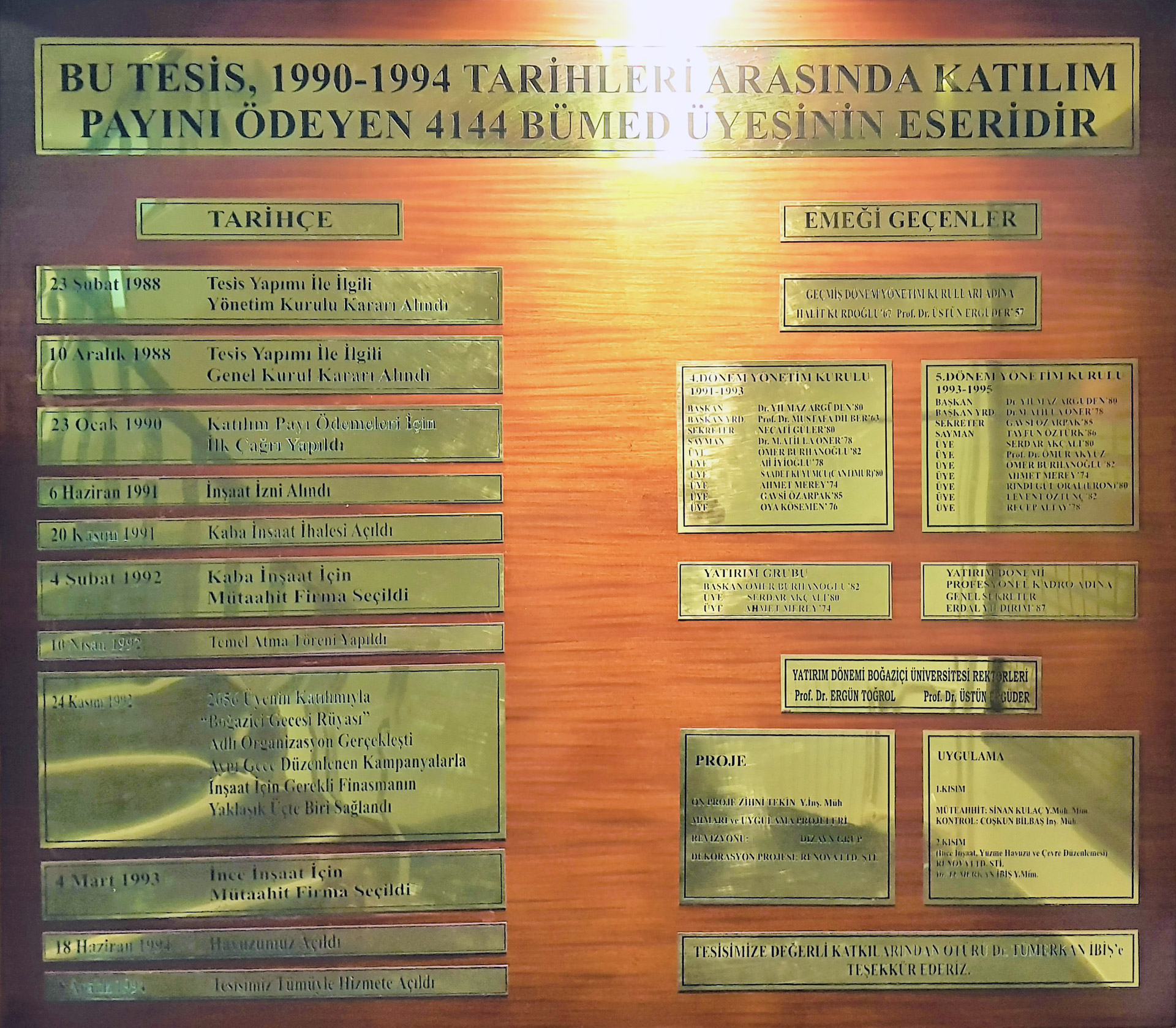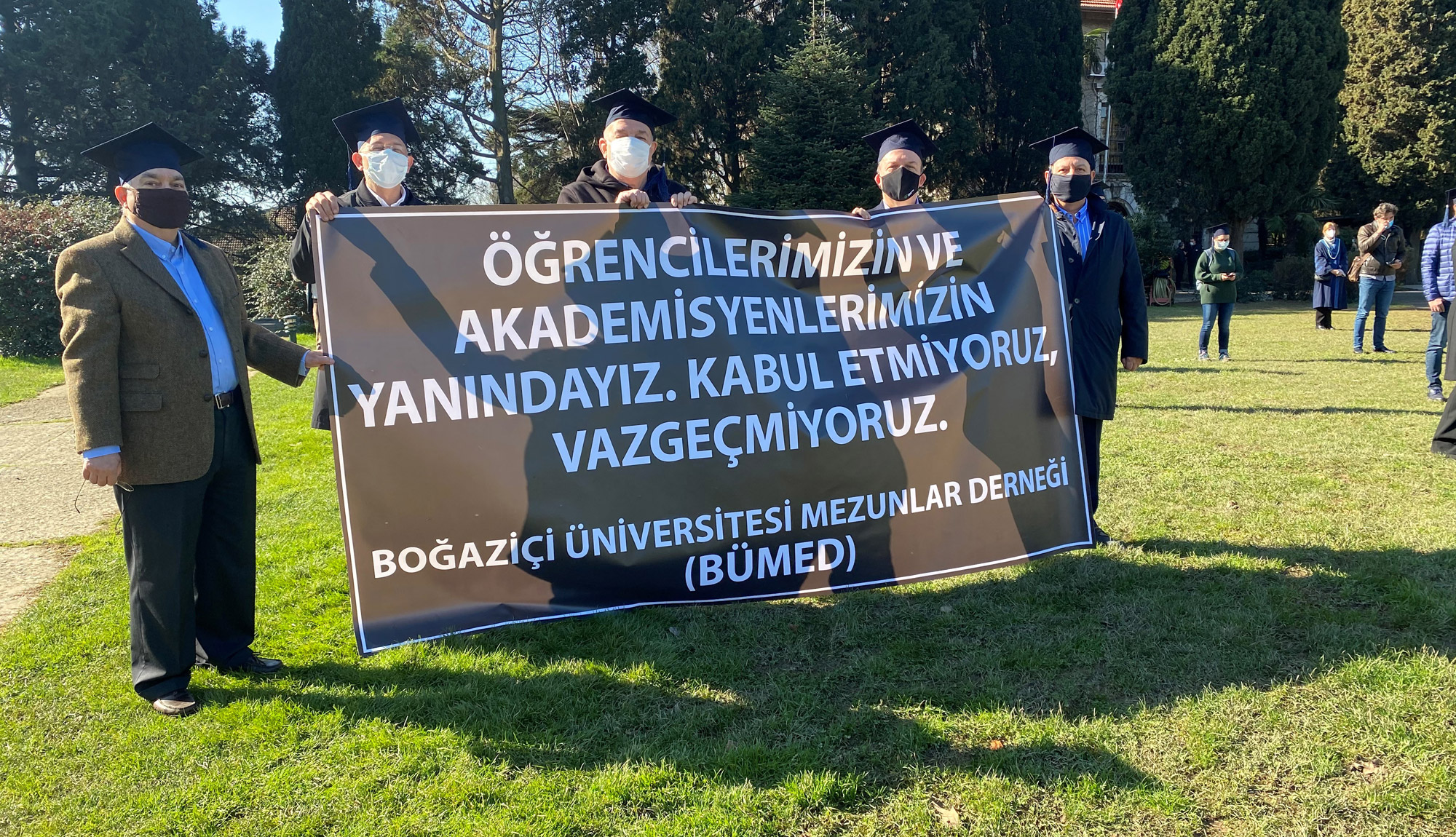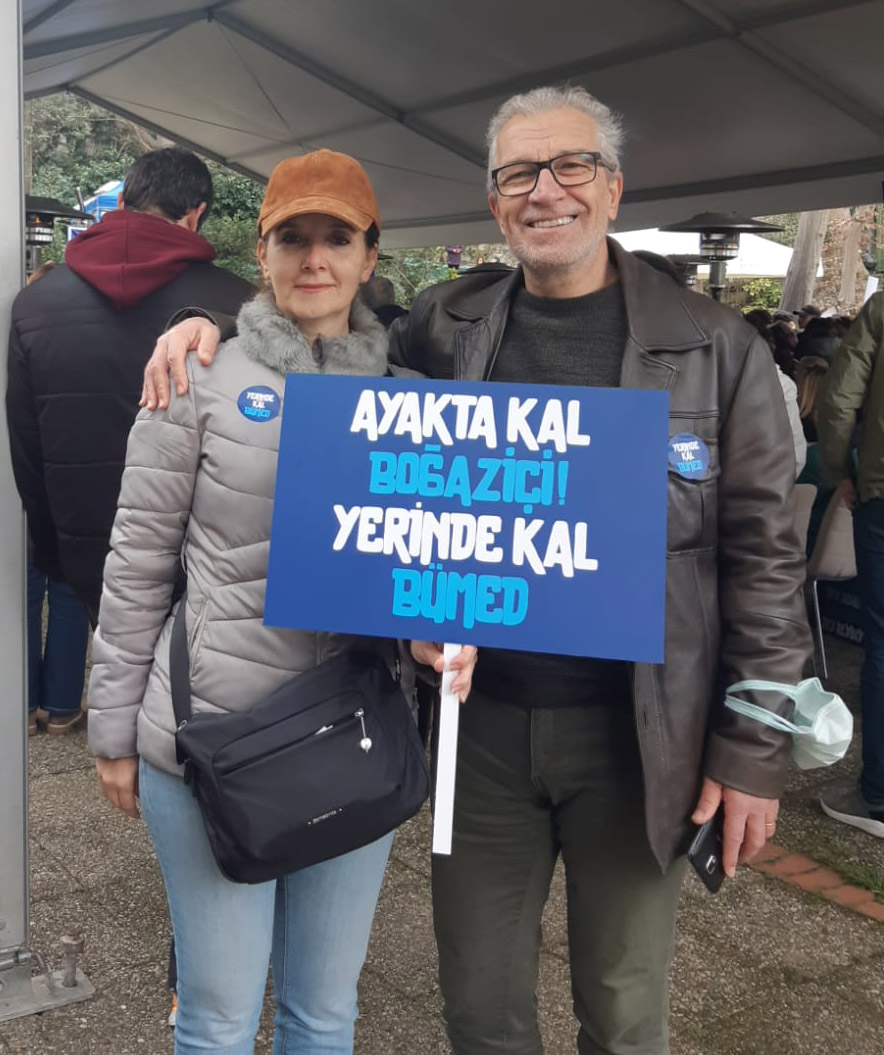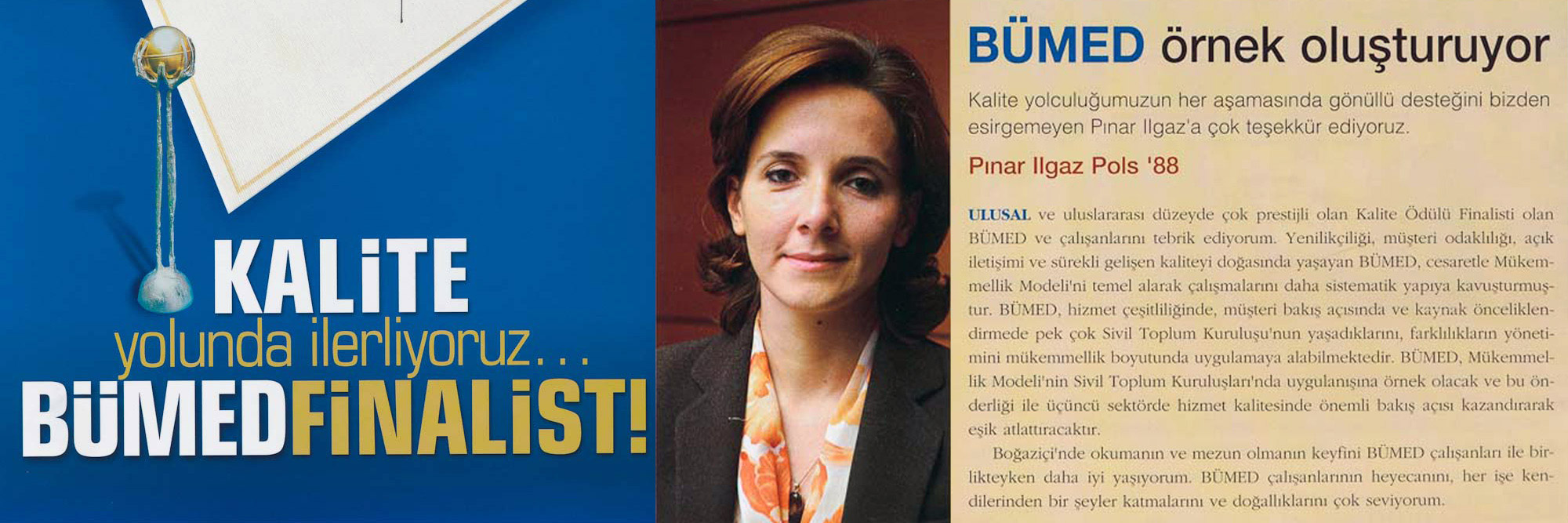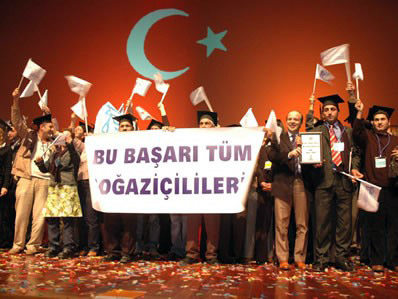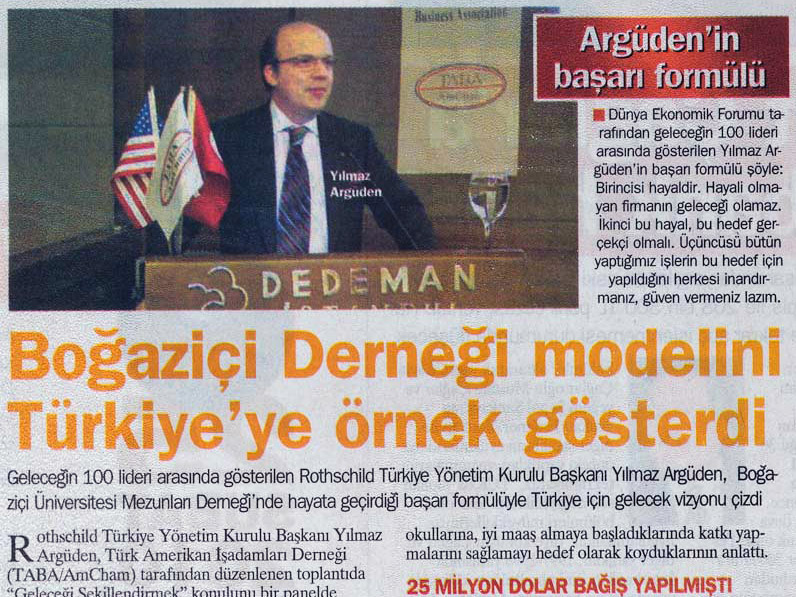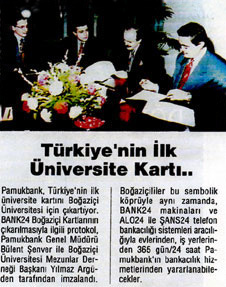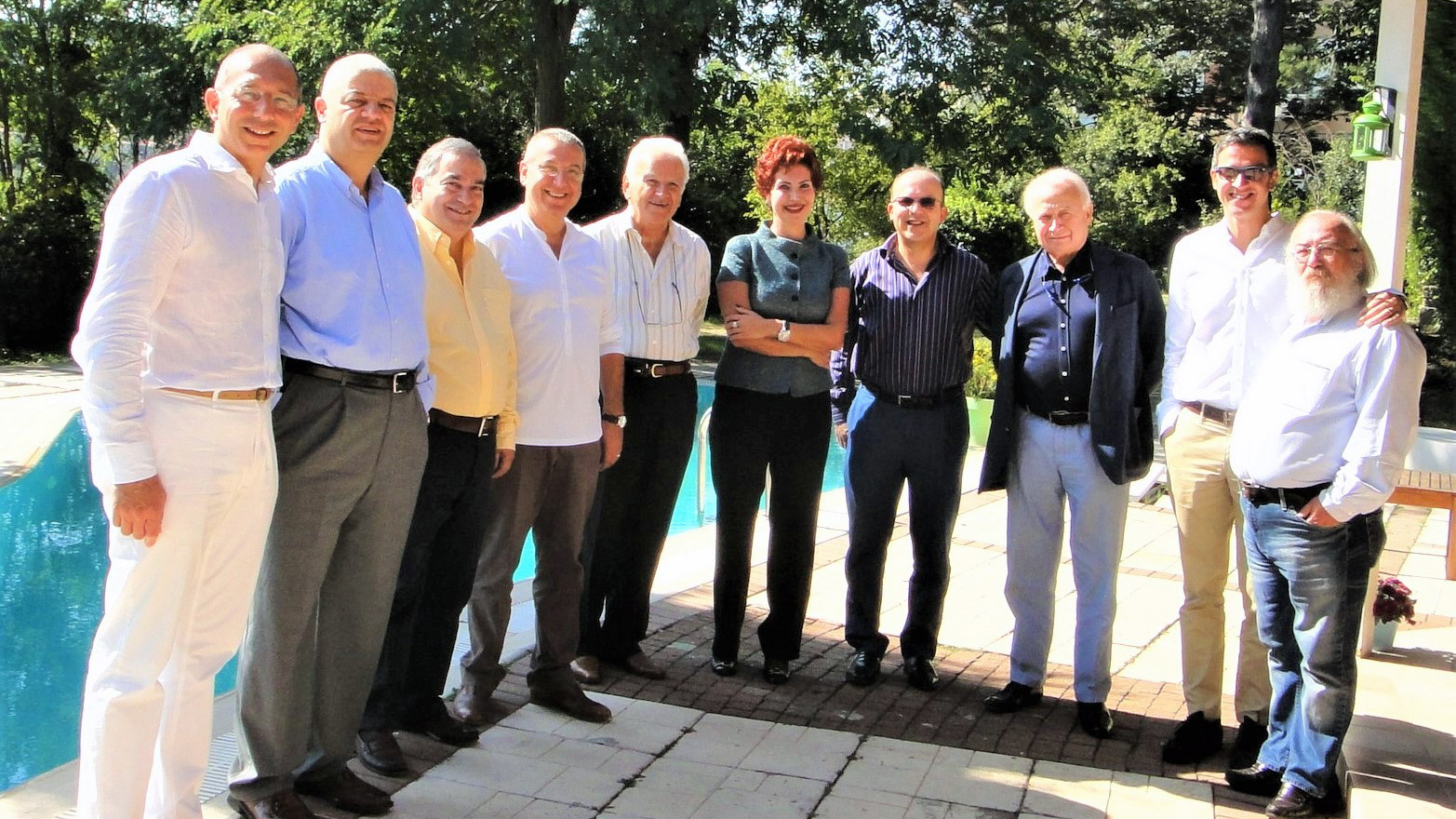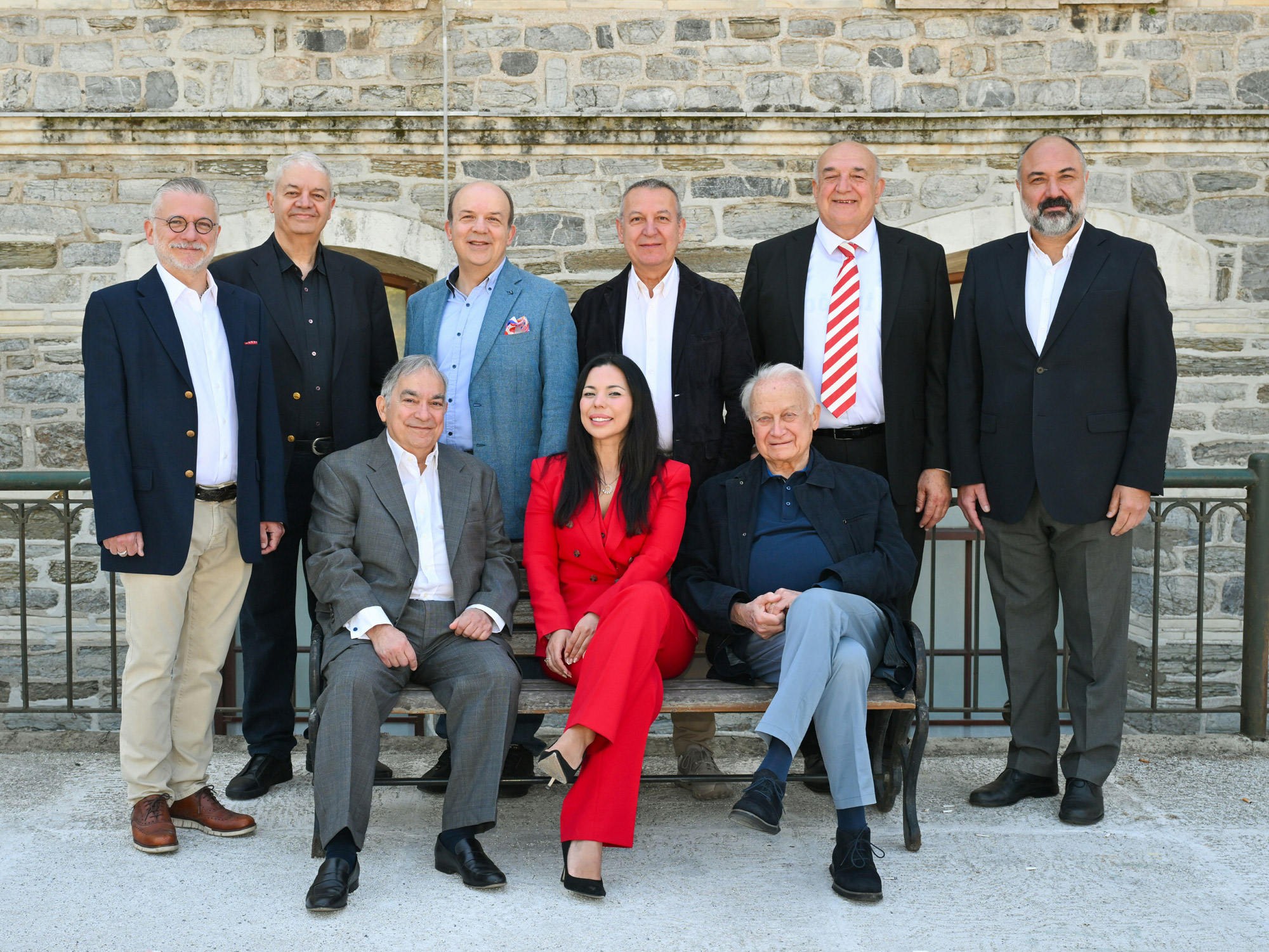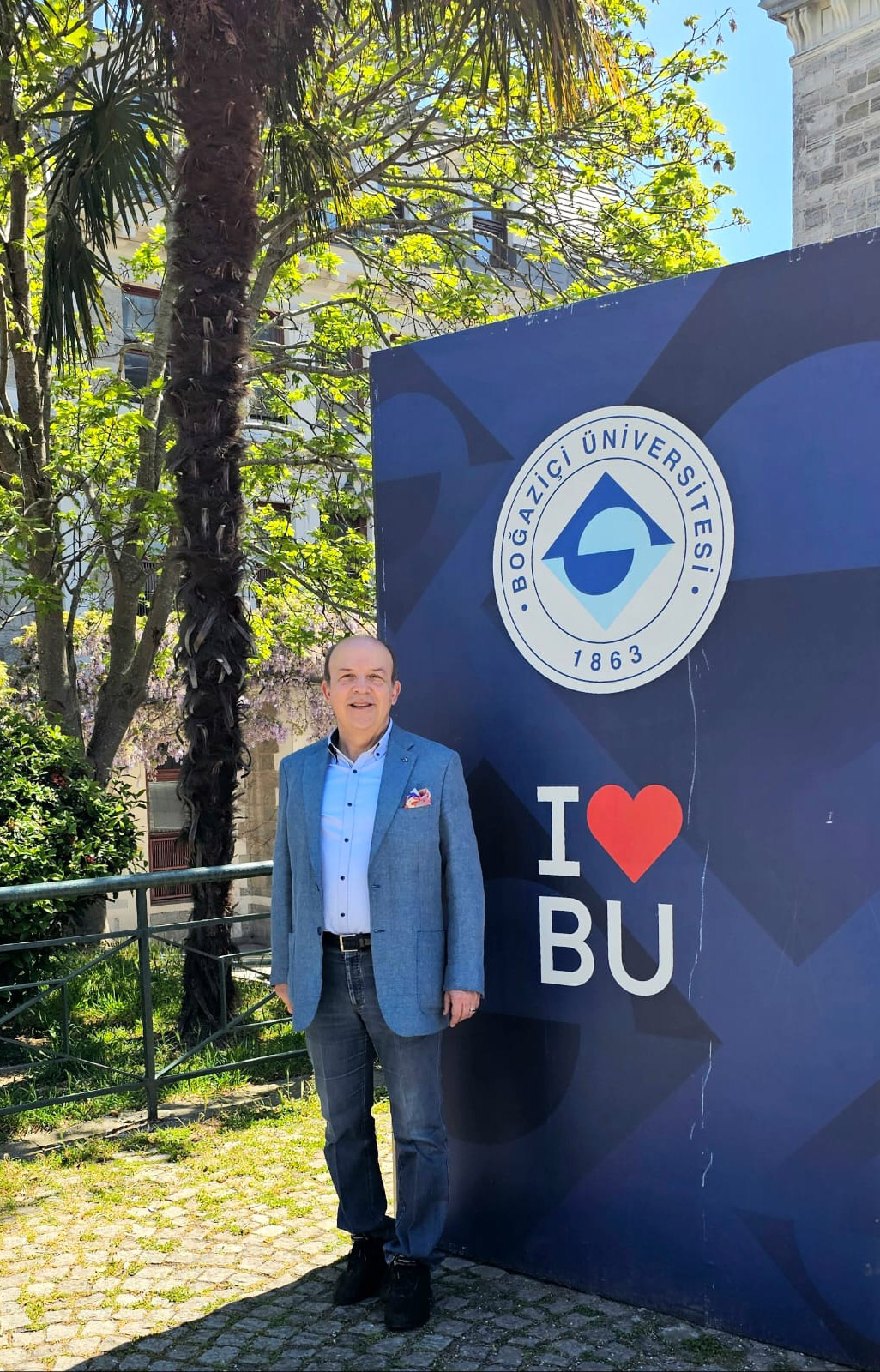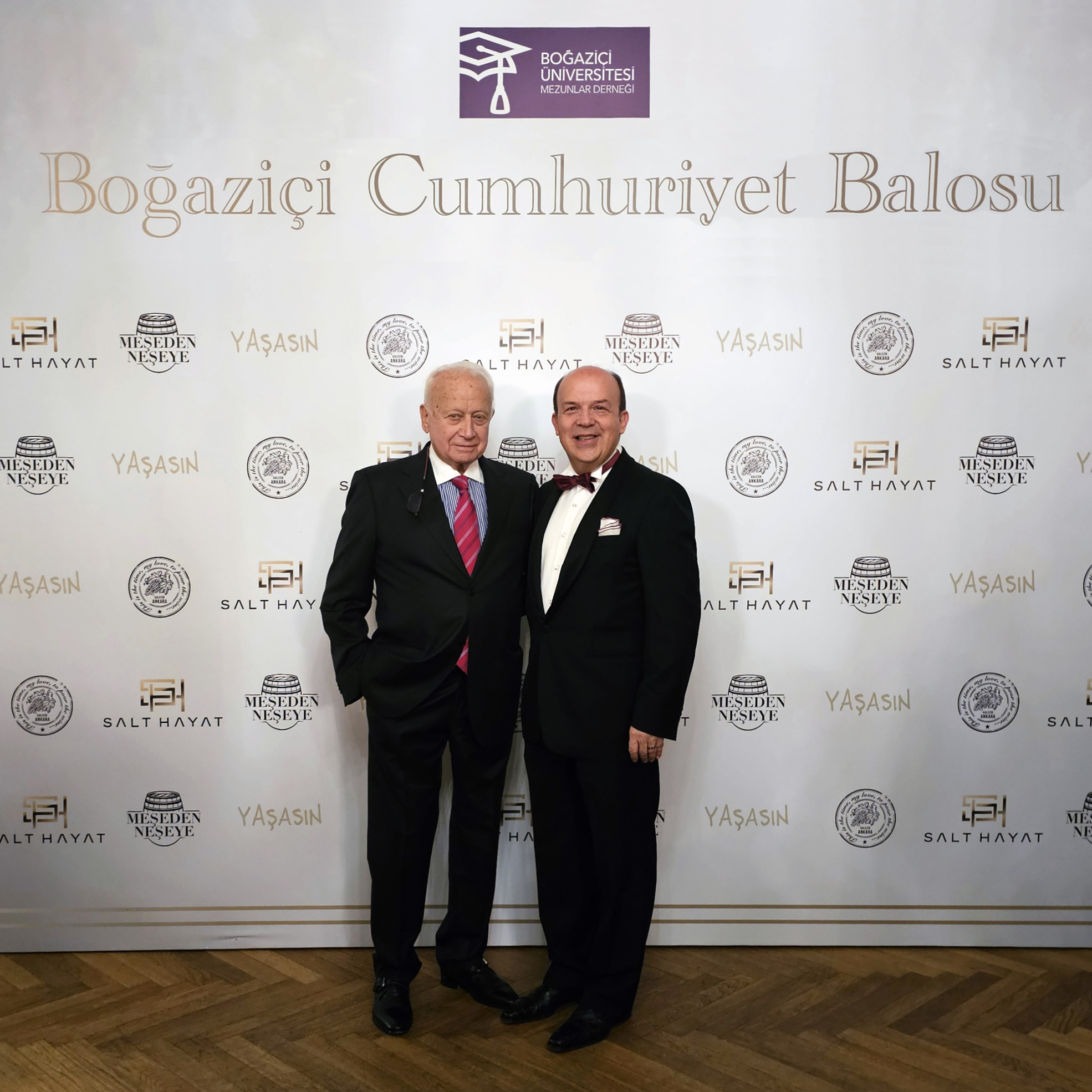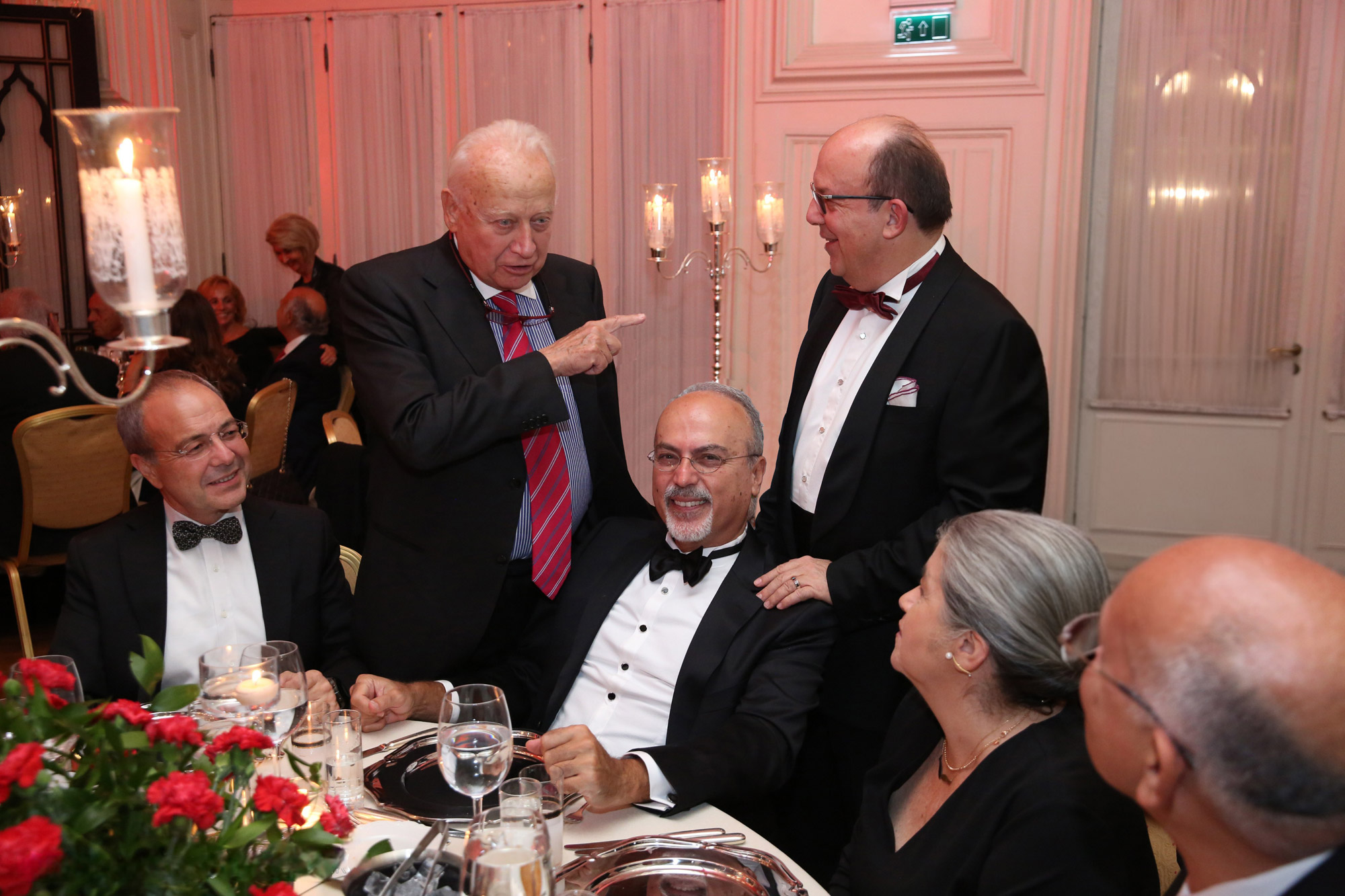After returning to Türkiye to assume responsiblities in the public sector, Dr. Argüden became one of the founders of the Ankara branch of the Boğaziçi University Alumni Club. After leaving the public sector and settling in Istanbul he was elected as the Chairman of the Boğaziçi University Alumni Association (BÜMED) in order to organize the graduates around the common objective of supporting the university. He facilitated the institutional development of BÜMED, initiated an annual giving program and motivated the alumni for sponsoring the development of the university by establishing facilities for the alumni at the university premises (BURC). BÜMED won the honor of being the first alumni association in Europe to win the National Quality Award for NGOs.
Boğaziçi University is a leading academic institution in Türkiye with the high caliber of its student, academic staff and graduates. The roots of the Bosphorus University goes back to 1863 when the Robert College, the first American university outside the US, was founded in Istanbul. Being a Boğaziçi University graduate implies the responsibility to strive for improving the standards in Turkiye as well as to support the University’s continuous improvement. BÜMED’s mission is to keep the graduates in touch and assume responsibility in the process of making Boğaziçi University a top-tier education and research institution on a global scale.
During the election campaign, Dr. Argüden and his team defined BÜMED’s mission and targets in a participatory manner. The candidates for the board were determined to ensure that it covered all the necessary skills as well as diversity of age, gender, and faculty.
BURÇ Facilities Constructed
During his chairmanship at BÜMED, “Civil Society Supported University” model was implemented. As the first step, BURC Facilities were constructed by the University with the support of 4,500 alumni, in order to provide an opportunity to bring together University and its Alumni on a regular basis. The first major fund-raising event was organized on November 24, 1992 at Conrad Hilton. Throughout the construction period of BURC Facilities, 3 levels of audits (internal, technical, and independent) were conducted and the results were shared transparently with all the donors.
BÜMED wins the National Quality Award

Quote from Melih Arat’s Leaders of Change Book
I have served as the Chairman of the Alumni Association of Bosphorus University; however, I would not be able to function as the Chairman of Istanbul Technical University’s Alumni Association. Even possessing the same abilities and talents, it would not be possible to transfer these abilities into a culture which one has not been enveloped in. One can be a great manager, but management skills by themselves are not enough for good leadership.
Volunteer organizations cannot be solely run by volunteers. Having an effective professional team leverages the volunteers’ resources. That is why hiring and developing an effective management team was one of our key priorities.
For each activity we undertook, we never failed to explain the linkages to our mission and were eventually able to raise sufficient funds for the development of a prestigious alumni center. One of the key elements we sought was to gain the trust of the alumni during this process in order to ensure the success of further fund raising activities for the university. Therefore, during the construction phase, we were careful to keep meticulous records and hired both a control engineer and an outside audit firm. Upon completion of the project, we had a celebration inviting 2500 persons, and we provided both internal and external audits of the fund raising activities and the costs incurred. But furthermore, we also conducted an independent audit of the engineering. Yes, we incurred costs for all of these audits, but the underlying reason behind them was to instill trust. The results were so successful that later the alumni support increased several fold. Following this, the university was able to construct a dormitory with Alumni contributions.
One of the most important motivational components of leadership is to continually demonstrate how your deeds are serving the vision. Every action, every project should serve the vision and an active pursuit of accountability should ensure that all resources are utilized for this purpose. Winning the trust of the community and teammates requires consistent behavior.
Civil Society in Support of University
“Only the educated are free.” Epictetus
That the importance of education increases further everyday is beyond dispute. Education is important not solely as a tool that enables one to work in high value added jobs, but also in order to have a say in critical social issues. One of the most notable advantages of our country is the high degree of sacrifice parents are willing to endure just to secure a good education for their children. The growth of an entire industry of preparation for high school and university entrance exams, the income level of private tutors, and the development of private schools attest to the depth of this sensitivity.
Yet, income distribution in our country is an impediment to attaining equality of opportunity, particularly in the period of preparation for college. As a result most of those who can make it to college tend to come from higher income families. On the other hand the majority of universities in our country are public and thus the state ends up subsidizing the relatively well off segment of the population by underwriting the financing of universities.
At the same time the high demand for college education compels the state to devote its scarce resources to found new universities instead of improving the quality of education in the existing ones. Thus, public universities that are on a tight budgetary leash are increasingly falling behind new universities funded by private foundations. Public universities can neither offer their faculty satisfactory salaries nor sufficient funding for research. Even their ability to send thier academic staff to participate in international seminars is limited.
A quick look around the world shows that there are four sources of funding for universities: 1) State funds, 2) Tuition paid by students, 3) Private donations, and 4) Revenue from research conducted on behalf of industry. We need to find extra funding for state universities to enable them to compete both with private foundation universities and the world. To accomplish this we need to increase the share of the last three revenue sources in university budgets.
There are several steps that can be taken. To start with, the fees can be raised to private university levels provided that only those who can will be asked to pay. Yet another step is to put aside a part of the state funds given to universities to cover the fees of needy students by creating scholarships. A new institutional arrangement that would facilitate the raising of funds from graduates and that would enable them to participate in supervising universities ought to be created. A board of trustees for instance is a mechanism widely utilized elsewhere. Offering incentives to the faculty to conduct research that could contribute to the technological development of the private sector and to publish in international journals will also help the scientific and technological development of our country.
The most important value for a country is its well-educated human capital. In order to compete on equal terms with the world we should benchmark with the successful examples and should not hesitate to adopt good practices. The reformation of our university system both in terms of its resource base and in terms of performance management will contribute significantly to the goal of making our educated human capital competitive with the rest of the world.
Dr. Yılmaz Argüden

